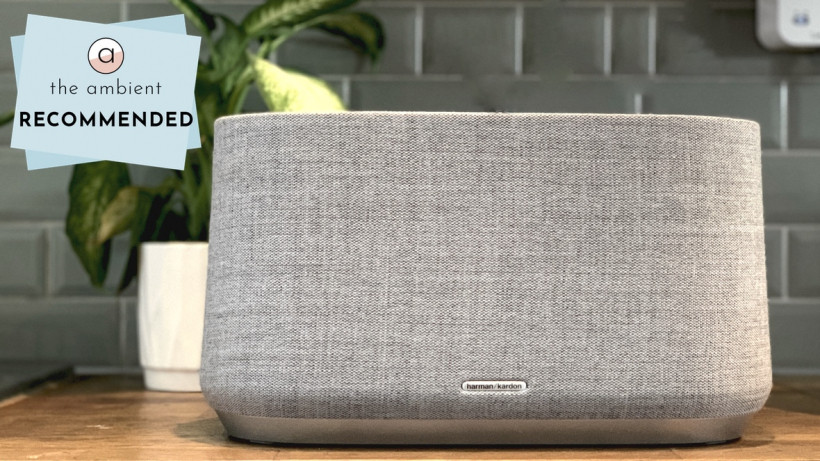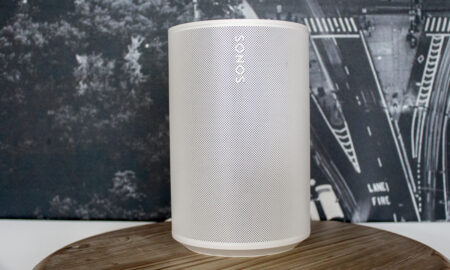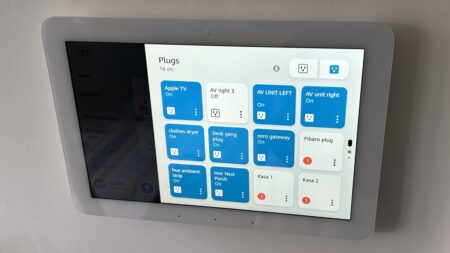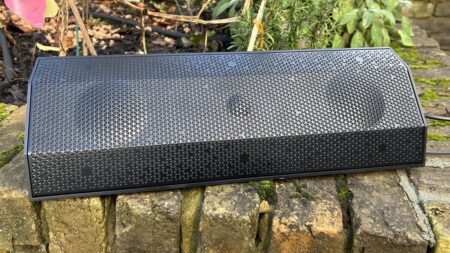Google Home Max on steroids - but is it enough to warrant the price jump?
For the most part, the Citation 500 is an excellent smart speaker - showing off the best of Google Assistant and matching it with bass-filled, rich sound. However, considering its mammoth price tag, this doesn't feel like a major upgrade over the Google Home Max. Unless you really want the touch control panel or the multi-room capabilities of this range, you may be better off saving your cash.
Pros
- Excellent sound
- Bluetooth and Chromecast
- Strong Google Assistant support
Cons
- Touch panel responsiveness
- Super expensive
- No audio ports
Harman Kardon isn’t messing around with its latest smart speaker range – a Citation range made up of eight different models, and something for every budget.
Pretty much in the middle of that family, and at the top-end of the tabletop smart speakers, is the Citation 500. Priced at £579.99, its considerable size hints at window-shattering sound, while Google Assistant is packed in for the brains and smart home control.
Read next: Best Google Assistant devices
However, matched up against rivals with similar and lower price tags, and competing in an increasingly competitive space, how does the Citation 500 compare? We’ve been living with it for the last few weeks in order to find out – read on for our full verdict, as we detail the device’s design, sound performance and smart support.
Harman Kardon Citation 500: Design
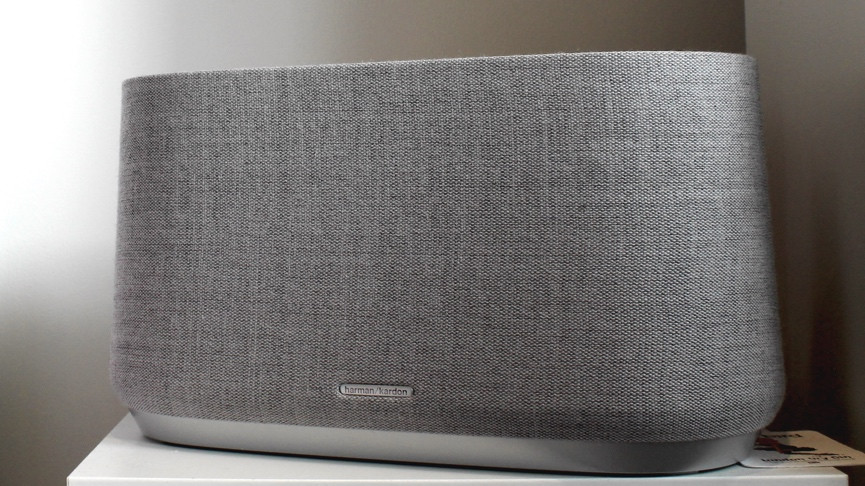
To look at the Citation 500, it almost feels like the cousin of the Google Home Max, with a similar grey fabric mesh and rectangular shell. Measuring in at 14.7-inches wide, 8.3-inches tall and 6.8-inches deep, the speaker is available in both black and grey (again, like the Max), both packing the same 25mm tweeters and dual 130mm woofers. The total output is also an impressive 200 watts, while the weight is a hefty 7.6kg. This thing is a beast.
So, what makes this design different from your run-of-the-mill speaker? Like with the Bose Home Speaker 500, there’s a panel built into the frame, letting you view what’s currently playing and more. And, thankfully, this is much handier than Bose’s window box, since it can be touch controlled.
Read next: Best Google Assistant commands
You’ll get two main screen to flick between – one that shows the music currently playing, with the other letting you turn Bluetooth on/off, manage the mic, prompt the Google Assistant or jump into the speaker settings and alter things like language.
Our only issue with this touch panel is the responsiveness. While the display itself is sharp, there’s a definite lag, say, when you slide your finger across it to increase the volume. And this lag also extends to the touch volume buttons resting below the screen, with it taking a second or two to actually begin decreasing the volume, before then accelerating too fast to catch the percentage you want the volume at.
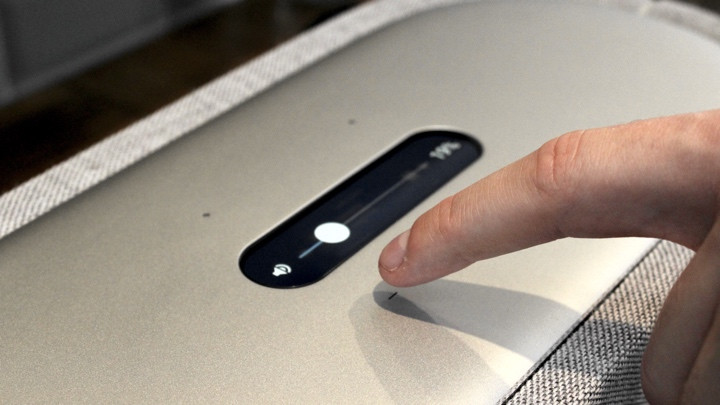
We found it much simpler to leave the panel to look pretty and display album artwork, rather than actually interact with it, and instead rely on Assistant to handle things like skipping tracks or altering volume. And, to be fair, the microphones do pick up your voice fairly well, even when you’re blasting busy songs like Oasis’ Some Might Say or Disappointing Diamonds Are The Rarest Of Them All by Father John Misty at 30% (yes, that is very loud, we promise). If you go north of that, though, with the walls shaking around you, Google struggles to pick up your voice.
And if you can’t even be doing with Google – maybe because your music service isn’t supported – there’s that Bluetooth support we just mentioned, as well as Chromecast, allowing you to ping tunes over from your connected device. However, unfortunately, though Harman Kardon has carved out a neat spot in the bottom rear of the Citation 500 for the power cord, Micro USB and reset button, there’s no other connections, like an aux port, for audio sources. Lame.
So, do we love the design, then? Well, to us, it definitely ticks some boxes. It looks neat enough on a shelf, coffee table or worktop, even with its size, and the fabric grille is generally able to avoid bumps and marks. However, it’s still not winning any design awards, and remains very much in the “meh” bracket, like the majority of speakers. At least with this range you get some choice, hey.
Harman Kardon Citation 500: Google Assistant
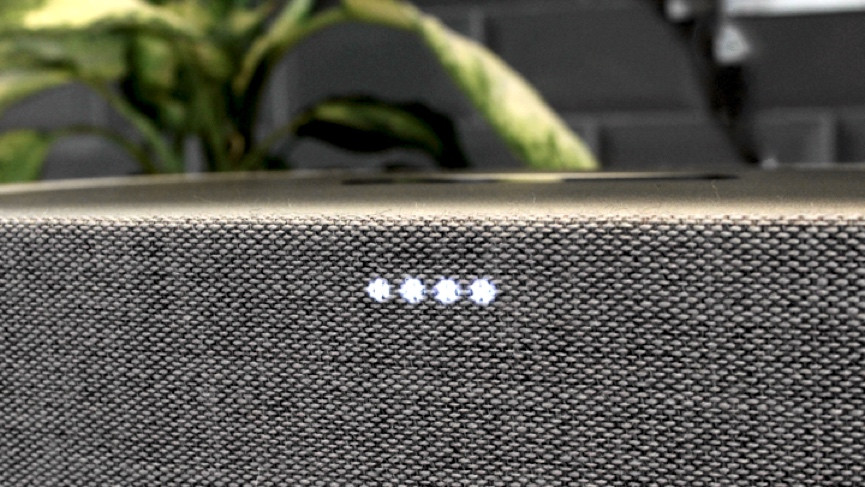
As we mentioned up top, all speakers within the Citation range come with Google Assistant built in. And for those wondering – yes, the speaker can handle everything your regular Google Home is able to. That means you’re able to control lights, door locks and cameras set up within the Google Home app.
The other Google Easter eggs, and regular features, such as Assistant reading out the weather and directions, are also present, although you won’t get any information on that small display. On the Citation, it’s the standard Google experience – that means you’ll often get more detailed answers than on Alexa, all thanks to Google’s massive brain, but it’s still not a perfectly even experience.
And while that means there’s plenty of integrations to enjoy, there’s also a couple of misses with regard to Google Assistant – as well as still having to say “OK, Google” or “Hey, Google” before every command. One day we’ll be able to just shout, “Google,” but that isn’t today.
One problem we discovered what that, no matter where we placed the Citation 500 in our home, there was a noticeable delay when sending music in from Spotify. This wouldn’t necessarily affect regular queries, but it was a consistent issue for music streaming.
One other thing that really sticks out is the minimal use of that screen. On Google’s Smart Displays, Assistant shows your words in real-time, which is a helpful pointer if it’s misunderstanding you. However, it’s left off this mini-display, which, while we understand to a degree (you’re not going to be staring at the top of this speaker very often, after all), still feels like an easy addition.
Again, Assistant is Assistant. As we routinely detail, Alexa is still the best assistant for controlling and linking up to your home, while Google is probably the better voice assistant to chat to. That’s pretty much the deal here, though we must say Assistant-enabled devices are now a much nicer experience to control and set up through the new app.
Harman Kardon Citation 500: Sound performance
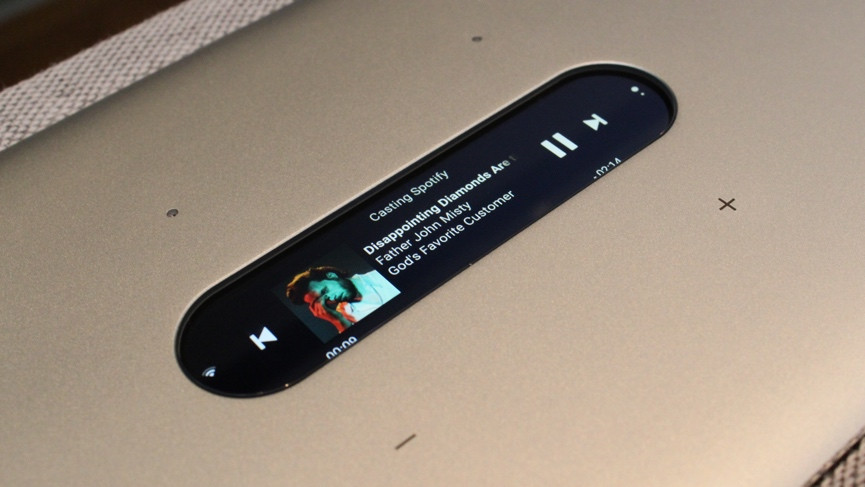
Sound performance, as we all know, is largely dictated by the speaker’s price tag. And with the Citation 500 costing far more than Apple HomePod and the Google Home Max, it’s important to keep in mind just what you’re getting for your money.
However, one thing you do get through this speaker is expert delivery. When we tested it on the top-end of its volume output, there was no distortion or sibilance on vocals, though we did find that there’s very much a small sweet spot in terms of bass. Go too high and it seems to drown, but go too low and it disappears, leaving drums and the like with way too much emphasis.
It reminded us, somewhat, of the LG ThinQ WK7 – a bass-first speaker that, while impressive to some, will see plenty other listeners pine for more balanced renditions of their music, with more consistent mid-level sounds.
Like with any speaker, it’s also mighty important where you place this one. Naturally, with its size and output, this is designed for bigger rooms. And it does fill them well. While it can suffer in bedrooms and smaller rooms, it handily fills open spaces and delivers sound that feels very much 360 degrees.
Is it impressive enough to make you plump for the Citation 500 over, say, the Max? Well, it’s definitely a richer listening experience, and the lure of adding more Citation devices to the mix and going multi-room (something we unfortunately didn’t get to test) is a bonus, even if the market for those features is small.


